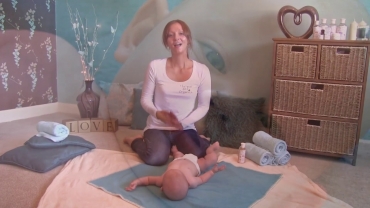One of the hardest and most frustrating things about being a parent is not being able to soothe your crying baby. Know that crying is one way your baby can communicate. It does not mean you or your partner are bad parents or doing something wrong.
You can’t spoil an infant. Respond to your baby when he or she cries. Soothing your baby helps both of you feel better. When your baby is crying, check for these needs first:
Is your baby hungry?
In need of a diaper change?
Sleepy?
Needing a change of scenery?
Overstimulated and needing some quiet time?
If you’ve crossed off this list, and your baby is still crying, try the following:
Swaddling or wrapping your baby in a soft blanket.
Using side or stomach position as you hold your baby.
Swinging or rocking while holding your baby close.
Making shushing sounds in the ear.
Having baby sucking on your finger or a pacifier.
And what if your baby has colic, which is excessive crying when your baby is between 3 weeks to 3 months old?
Victor: It gets a little scary sometimes that you don’t know why the baby won’t stop crying.
Erika: So I called the advice nurse in the middle of the night and she was very, very helpful to guide me with the steps to soothe my baby. It, turned out that I wasn’t swaddling my baby tight enough. And it worked like a charm.
Amanda: One thing I wish I had known was that, that sleep patterns change for babies so fast. Um, that first night can be really easy, and then, you know, the next few weeks can be just two, maybe three hours stretches if you’re lucky.
You’re tired, and it’s normal to get frustrated, so it’s ok to put your baby down in the crib for a few minutes, or ask for help. Don't let your baby cry alone for more than 5 to 10 minutes. After 10 minutes, try the soothing tips again.
- 4758 views













